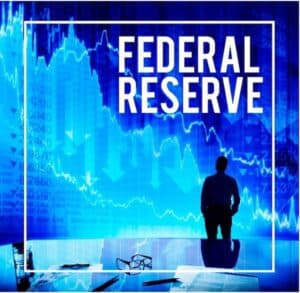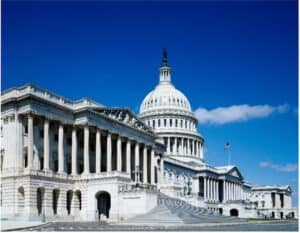
How does Monetary and Fiscal Policy impact me?
By: F5 Financial
How DOES the Federal Reserve Bank and the Government affect the money in your pocket?
Many of us have seen extra money in our bank accounts in the past year due to stimulus checks as a response to the pandemic. The current $1.9 Trillion (That is $1,900,000,000,000 for you to see all the zeros!) stimulus bill is poised to create unprecedented government spending.
Why are interest rates so low now?
At the same time, interest rates are at rock bottom prices, making it cheaper than ever to secure a loan for a new home, car, business, or other large, financed item.
Money seems to be cheap and readily available everywhere. What are the reasons for all this, and who is pulling the levers that make this possible? Much of this is guided by Monetary Policy and Fiscal Policy.
Supply and demand of money
Money follows the same economic concepts of supply and demand of many other commodities. If there is a large supply for a given demand, the cost, or interest rates will drop. If the supply tightens but the demand stays the same, people will be willing to pay more for the money in the form of higher interest rates.
Big supply of money? People demand to buy stuff & venders raise prices & interest rates go up
How money affects the economy, in a nutshell, is that if there is too much available in the market, demand for goods increases and vendors will tend to raise prices because they know people will pay for it because they have the money, which can lead to inflation.
In contrast, a big supply of LOW-INTEREST money? We get a boom! (e.g., 2020 housing market)
However, If demand for a product is low—but a plentiful, low-cost money supply makes it easy to buy— then this tends to stimulate the purchase of the product. As an example, the housing market has been booming in the past year, even while a pandemic has blunted the economy, because the cost of buying a home has never been cheaper with rock bottom mortgage rates.
Money follows the same economic concepts
of supply and demand of many other commodities.
Monetary Policy tries to keep the balance
Monetary policy attempts to walk the fine line of keeping the economy stable with moderate growth, while at the same time preventing excess inflation from too much money flooding an economy that does not need the stimulus.
What is “the Fed”? It’s the Federal Reserve System (FRS)—our central bank.

Expansionary monetary policy – eases money supply
The Fed works to expand the economy in difficult economic times (like, for example, an economy-crushing pandemic) by easing the supply of money, which is called expansionary monetary policy.
Contractionary monetary policy – restricts money supply (to control inflation)
Then, in good economic times—the Fed works to control inflation and an over-heating economy by restricting the supply of money, called contractionary monetary policy.
How the Federal Reserve Board impacts the Stock Market
The Fed is run by The Federal Reserve Board, and it is no wonder, with the power they wield, that the stock market will pay keen attention to the meetings of this Board—and to official comments made by the Chair!
3 Tools the Fed uses to impact money supply
Tools that the Fed uses to influence money supply include three main strategies:
- CHANGE RESERVE REQUIREMENTS: The Fed can change reserve requirements for commercial banks that hold deposits with the Fed. If the Fed raises reserve requirements, commercial banks will have less money to lend, causing them to charge higher interest for the money they have left. On the other hand, If the Fed lowers reserve requirements, the commercial banks have more money to lend, allowing them to charge lower rates.
- CHANGE THE DISCOUNT RATE: Changes in the discount rate, which is what the Fed charges to banks when it lends them money. If the discount rate is higher, this is passed along to recipients of commercial bank loans. Naturally, the converse is also true, and a lower discount rate translates into lower lending rates from the banks that borrowed from the Fed.
- BUY & SELL TREASURIES: The Fed can buy and sell U.S. treasuries from commercial banks. When the Fed buys these treasuries, the banks have more money to lend. When the Fed sells treasuries to the banks, they have less money supply because they used their reserves to buy treasuries. The Federal Open Market Committee (FOMC) oversees these transactions, called Open-market Operations.
What is Fiscal Policy, and what does it control?

Fiscal policy can stave off economic disaster! Yet, there are also costs—possibly to YOU.
Expansionary monetary policy and accelerated government spending can play a huge role in boosting the economy and preventing recessions, and thus far have helped stave off economic disaster stemming from the pandemic.
However, there are potential long-term consequences from these policies that can affect your pocketbook directly:
- With low interest rates, it can be hard for conservative investors to save for retirement due to lower bond yields.
- Too much easy money can create “bubbles” in financial markets, much like housing bubble that burst in 2008.
- When a government “deficit spends” too much, they may eventually have to pay higher interest rates, which could lead to higher taxes to service this debt.
Navigating policy changes with a fiduciary financial advisor by your side
Navigating how to take advantage of the current monetary and fiscal policy and planning the future can be difficult. Having a fiduciary financial advisor by your side can go a long way towards answering these questions. For more information on how we can help you please visit us at www.f5fp.com, or schedule a free consultation here.
Would You Like More Support?
- Do you have a well-defined Investment Policy Strategy that is used to drive your investments in support of a comprehensive financial plan?
- If not, would you like to partner with someone who is used to helping people get through these struggles and (then, with confidence) implement portfolio strategies in a systematic manner while focusing on your desired outcomes?
If so, feel free to send us an email or give us a call. We’d love to have the opportunity to help you find a bit more peace of mind when it comes to investing.
Photo credit: rawpixel.com
F5 Financial
F5 Financial is a fee-only wealth management firm with a holistic approach to financial planning, personal goals, and behavioral change. Through our F5 Process, we provide insight and tailored strategies that inspire and equip our clients to enjoy a life of significance and financial freedom.
F5 Financial provides fee-only financial planning services to Naperville, Plainfield, Bolingbrook, Aurora, Oswego, Geneva, St. Charles, Wheaton, Glen Ellyn, Lisle, Chicago and the surrounding communities; to McDonough, Henry County, Fayette County, Atlanta and the surrounding communities; to Venice, Sarasota, Fort Myers, Port Charlotte, Cape Coral, Osprey, North Port, and the surrounding communities; and nationally.
We'd love to have the opportunity to hear about your situation. Contact us here to schedule an appointment for a consultation.
Learn more about What We Do.
Helping You With
Wealth Preservation – Wealth Enhancement – Wealth Transfer – Wealth Protection – Charitable Giving
